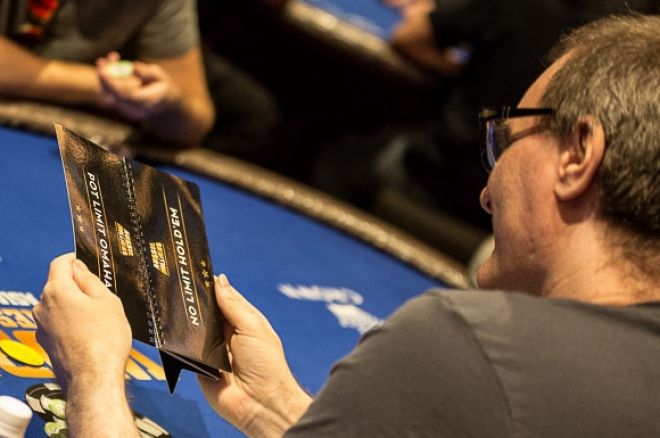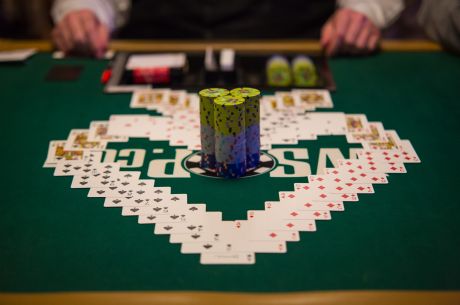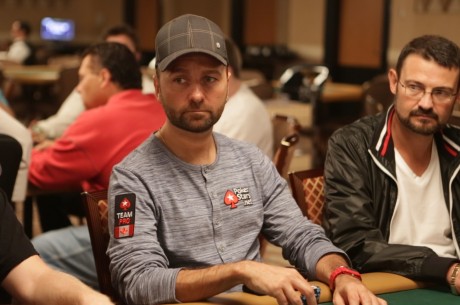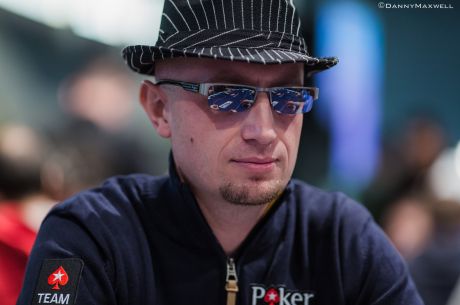The More You Know: Positives of Learning Other Poker Variants

I once took a history class with a teacher whose favorite saying was ��The more you know, the more you know.��
Brilliant, right? We were rolling our eyes in the back of the classroom, too. Often while unavoidably imagining a rainbow comet trailing out of a star like in those public service announcements.
He��d say it once every other class or so, usually as a kind of disclaimer for some digression that he would go on in which he��d indulge in some storytelling that wasn��t exactly part of the course. The stories were always related somehow, though, often providing further context or a different perspective on the primary subject matter.
I don��t think I really appreciated his point until later, but what he meant was it never hurt to learn more �� even about material that wasn��t ��required�� or technically part of the class �� because often knowing more about one thing usually helped you understand or know more about something else, too.
Poker certainly demonstrates this principle in various ways, one of which is the way learning one game can directly help your understanding of another.
Becoming a ��Complete Poker Player��
Recently in ��Tips You Can Text: Abbreviated Advice for Five Non-Hold��em Games,�� I shared a few brief pointers regarding games other than no-limit hold��em. Like many, NLHE is my favorite game, but I also enjoy playing other games from time to time �� both for the sake of variety and because it really is true that playing different variants actually helps one improve at all of them.
I remember when I first started trying games like pot-limit Omaha, razz, seven-card stud, and seven-card stud hi-low, I heard Barry Greenstein on a podcast discussing the ��Big Game�� played in Bobby��s Room at the Bellagio. He explained how they always played a rotation of games, not just sticking to one but often moving through more than a dozen different variants.
Greenstein insisted that to become a ��complete poker player�� you had to learn all of the different variants and not just specialize in one. One point he was making was that if you know all the games, you��ll always be able to play with any group of people regardless of what game is chosen. Another was that by knowing all variants, you won��t miss out on good opportunities, say, when a loose, inexperienced player with deep pockets says he wants to switch the game and give Badugi a try.
But the fact is once you start playing stud games or PLO or other games, you begin to learn more not just about those games, but all games. You find yourself facing different circumstances that help sharpen your understanding of odds and probabilities, the importance of position, starting hand selection, betting sequences and bet-sizing, and other situations and concepts common to all poker games that can help you when playing NLHE, too.
New Variants, New Perspectives
I��ll give one uncomplicated example of what I��m talking about �� how pot-limit Omaha once taught me something about drawing hands in no-limit hold��em.
There are a couple of major differences between PLO and NLHE, one of which is the obvious one of starting with four cards instead of just two. Since you must use two of those cards along with three of the community cards to make a five-card hand, you essentially are dealt six different ��hands�� among your four hole cards to play. Therefore it��s easier to make higher-value hands like straights, flushes, full houses, and so on in PLO than it is in NLHE.
Another less obvious difference between PLO and NLHE (at least to new players) is the fact that the betting is pot-limit rather than no-limit. That change has a few consequences, one being that there often tends to be more postflop play in PLO.
One frequent postflop situation in PLO pits a player with a made hand versus another who is on a draw, perhaps a multi-way draw (straight and flush) or a wrap draw for which the number of potential outs can be very high. For example, let��s say a player with Q?Q?8?5? raises from the button, someone in the big blind holding J?10?8?7? defends with a call, and the flop comes Q?9?6?.
That��s a situation in which it wouldn��t be too surprising to see the players start betting heavily on the flop, likely getting to an all-in situation for one of them. The player with the queens currently has the best possible hand with top set, but is quite vulnerable to his opponent completing a draw on the turn or river. In fact, the player with the drawing hand is the favorite here with two cards to come, slightly over 56% to win by making a straight or flush and avoiding the board pairing to give his opponent a full house or quads.
Seeing this situation come up enough times in PLO began to illustrate for me the power of a strong drawing hand. It took me a few times of having such a hand before I realized I could start raising with it rather than simply calling. Even if my opponent did have the best possible made hand against my big draw I was a favorite, and if he didn��t, I could even be way ahead even though at that moment I might just be holding something like jack-high.
Experiencing that in PLO helped open my eyes to betting ��on the come�� in NLHE �� something with which I was already obviously familiar, but hadn��t necessarily appreciated as readily. You can bet and even raise with draws in NLHE, and sometimes you��ll win hands without even having to make complete that draw should your opponent fold. Occasionally your drawing hand might even be a favorite over a made hand in NLHE, too, such as when you hold two overcards and a flush draw and your opponent has top pair. For example, if the flop comes Q?8?6? and you hold A?K?, you are actually a small favorite over an opponent with Q?J?.
I recall moving over to razz and eventually realizing how there, too, I could be behind in hands but could still raise knowing I held the better draw. I was becoming increasingly familiar with something that was a significant part of all poker variants �� playing draws �� and was therefore learning more about the strategy involved by facing the same situation in different games.
Conclusion
Playing other games will undoubtedly help you learn more about your preferred one. In fact, it might even help you learn more about yourself �� including whether or not you might actually be better at a different poker variant. (You might even find a new favorite game.) It also will help broaden your overall understanding of many important poker concepts.
In other words, the more you know, the more you know. (There must be a better way to say that, though.)
Get all the latest PokerNews updates on your social media outlets. Follow us on Twitter and find us on both Facebook and Google+!








